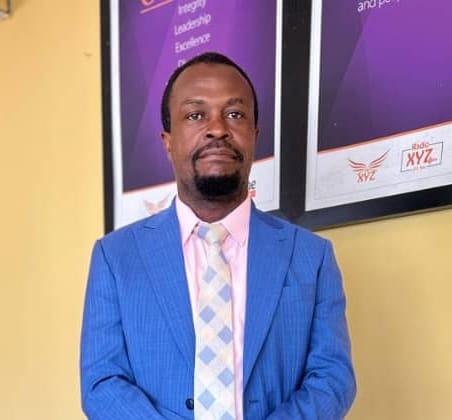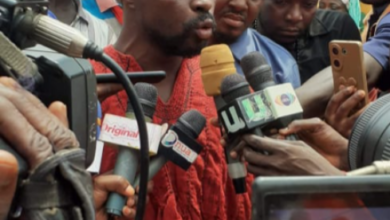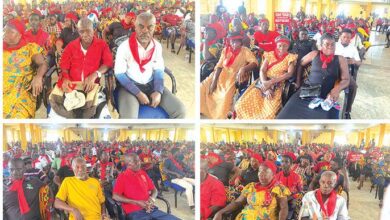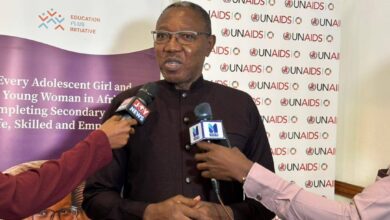Fourth Estate’s Sensational GH₵ 3Bn Report On NLA-KGL Deal Flawed
… CIBI Slams Fourth Estate; Insists There Was No Wrongdoing

The Chamber of Indigenous Business and Investors (CIBI), has issued a scathing statement condemning what it describes as “unethical and misleading journalism” by ‘The Fourth Estate’ and the Media Foundation for West Africa (MFWA) over their recent investigative report on the National Lottery Authority’s (NLA) licensing arrangement with KGL Technology Limited.
According to the Fourth Estate’s report, the NLA had handed over a GH₵ 3billion business to KGL Technology in return for what was described as “peanuts” an annual fee of GH₵ 170 million under a 15-year contract, renewable for an additional five years.
However, in a strongly-worded response, CIBI has refuted these claims, describing the report as “factually inaccurate, misleading, and laced with sensationalism.”
The statement, signed by Executive Director Mr. Alistair Nelson, emphasizes that the Fourth Estate and MFWA demonstrated “gross ignorance of the legal and operational frameworks that govern Ghana’s lottery industry.”
No Contract, Only Licensing Agreement
CIBI clarified that the arrangement between NLA and KGL is not a procurement contract as alleged, but a licensing agreement issued by the Board of NLA under Sections 5 to 14 of the National Lotto Act, 2006 (Act 722), and Regulations 12 and 13 of Legislative Instrument (L.I.) 1948.
“All licensing agreements issued by NLA — including those to Lotto Marketing Companies and Private Lotto Operators do not go through the procurement process because they are not procurement contracts,” the statement stressed.
“It is therefore professionally reckless to characterize the NLA-KGL agreement as a contract.”
Long-Term Licensing Not Unique to KGL
CIBI also dismissed claims that the 15-year licensing period granted to KGL was exceptional. It pointed out that several other companies have enjoyed similar or even longer agreements:
Lots Services Ghana Limited signed a 15-year deal in 2013, with a possible 15-year renewal.
Simnet Ghana Limited signed a 10-year contract in 2015, also with automatic renewal.
Alpha Lotto Limited and other private operators signed 10-year contracts in 2024.
Many Lotto Marketing Companies have been operating under licenses issued in 2006, and some lotto receivers have been in business with NLA for over 40 years.
No GH₵3Bn “Given Away”
Refuting the report’s assertion that the NLA gave away a GH₵ 3 billion business to KGL, CIBI presented official figures showing that the NLA never generated GH₵ 3billion annually in its entire history.
Between 2013 and 2020, the NLA generated a total of GH₵ 2.76 billion in revenue — an average of about GH₵345 million annually — and paid out GH₵ 1.3 billion in winnings over the same period. The highest revenue ever recorded was GH₵ 401 million in 2017.
“This clearly shows the GH₵ 3billion figure cited by the Fourth Estate is not just exaggerated — it’s entirely false,” the statement added.
KGL Payments to Govt Exceed Past NLA Contributions
Between 2013 and 2020, the NLA paid only GH₵182 million into the Consolidated Fund. In contrast, under the current licensing arrangement, KGL contributes GH₵170 million annually, an amount that exceeds the total contributions made by the NLA over an eight-year period.
CIBI emphasized that between 2019 and 2024, KGL’s payments to the government exceeded the NLA’s total remittances over more than a decade, proving the value of the current arrangement.
KGL Carries All Financial Risk
The statement further highlighted that the NLA bears no financial risk or cost under the current licensing agreement with KGL.
All costs, including IT infrastructure, prize payouts, marketing, technical fees, and telecom charges are fully borne by KGL.
Moreover, KGL is responsible for all liabilities and losses associated with the operations of the *959# USSD short code, with no compensation from the state or the Lotto Account.
KGL Is Not a Monopoly
CIBI rejected claims of monopoly, explaining that licensing exclusivity is standard practice for specific lottery products, citing similar exclusivity arrangements for other games like “Wotiriyie” (787), “Atena” (766), and “Lucky 3” (987), among others.
“Exclusivity in USSD and web-based lottery operations is common across the industry,” the statement read. “Therefore, the assertion that KGL unfairly enjoys a monopoly is not supported by the facts.”
Previous Mobile Lottery Ventures All Failed
CIBI also pointed out that prior attempts by NLA to operate mobile-based lottery services without partners, including in 2008, 2015, and 2019 — all failed. Only the partnership with KGL has resulted in sustained success and consistent revenue contributions.
Consistent Tax Compliance
CIBI noted that KGL has never defaulted on tax payments to the Ghana Revenue Authority (GRA) since 2019. Records of its tax compliance are readily available at GRA, further reinforcing the company’s contribution to the national economy.
CIBI concluded by urging the Fourth Estate and MFWA to retract their “misleading and poorly researched report,” emphasizing that the success of the NLA-KGL partnership is grounded in verifiable data, legal compliance, and sound business practice.
“If KGL ceases operations today, there is no GH₵ 3billion business waiting for the State to collect,” the statement read. “All current benefits to the State are made possible because of the financial investments and operational capacity of KGL, not NLA.”



